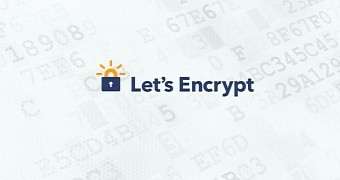Let's Encrypt, the free-for-all certificate authority (CA) sponsored by the Linux Foundation and provided by the Internet Security Research Group (ISRG), has announced the launch of its public beta period, during which users that want can request a free TLS certificate and set up HTTPS websites for free.
Let's Encrypt, the darling project of the InfoSec community, has been in a limited beta period for some months now, and only issued a small number of TLS certificates to test and fine tune its service.
As expected, things went very well, and after issuing over 26,000 free certs, the team is now ready to move forward and make their service available to the general public.
If you haven't been keeping up with the news, Let' Encrypt is a public service that wants to promote HTTPS on the Web, and they decided that the best way to do this is by providing a cheaper and simpler alternative to classic CAs.
The certificate installation process has been automated to a few CLI commands
Currently, TLS certificates issued by Let's Encrypt are trusted by all browsers, and the development team has worked very hard to simplify the installation process, managing to cut it down to a few CLI instructions and 2-3 clicks.
This is almost unthinkable for someone that added HTTPS support to its website 5 or 10 years ago, when you would need the help of a paid professional to safely guide you through all the steps, in the proper order.
To get started, users should download the Let's Encrypt client on their servers, and follow the installation instructions detailed in the README file. Python support is needed to run the client.
If everything goes well, a properly configured TLS key will be installed, along with an SHA-256 signature, and the Web server correctly configured to use it.

 14 DAY TRIAL //
14 DAY TRIAL //